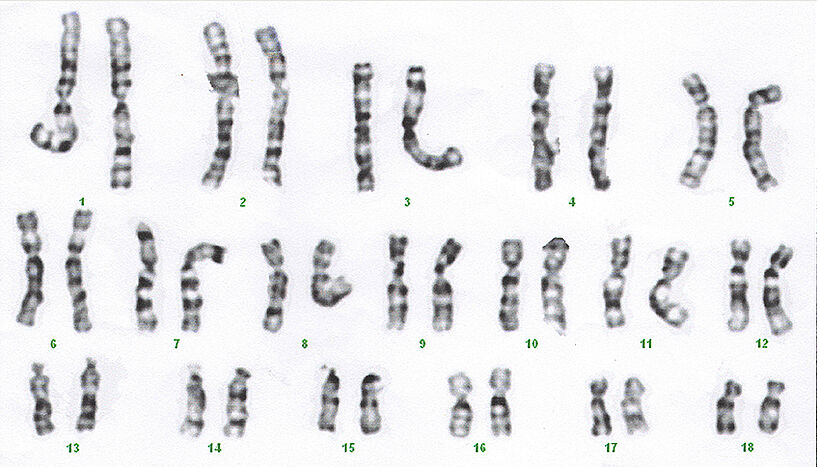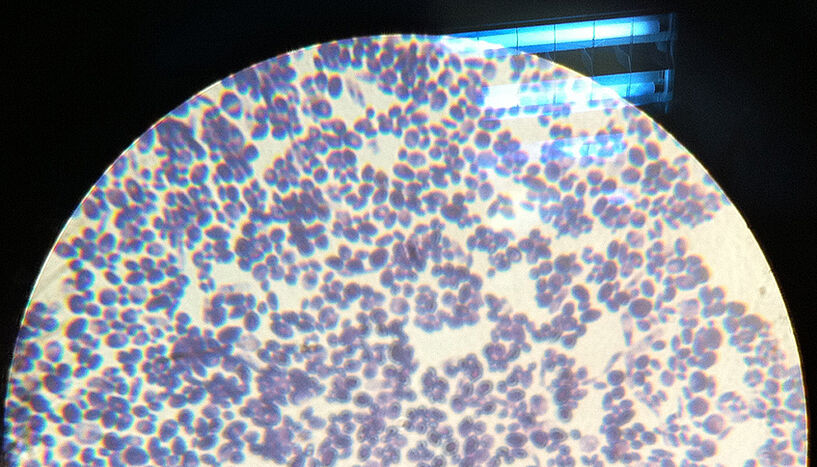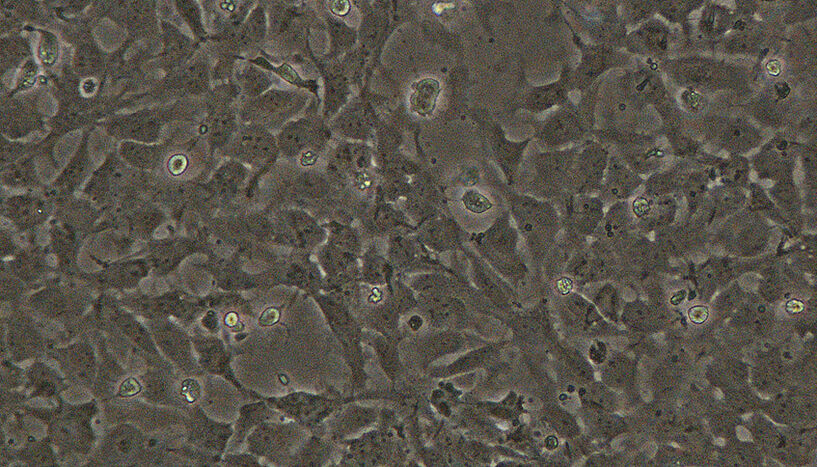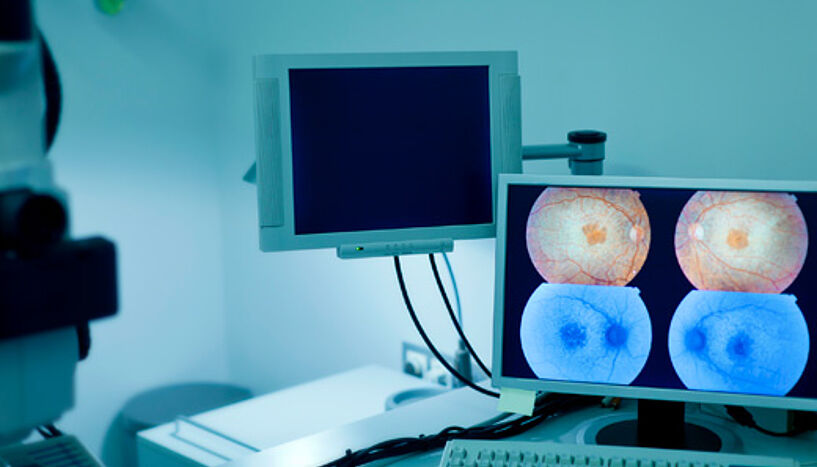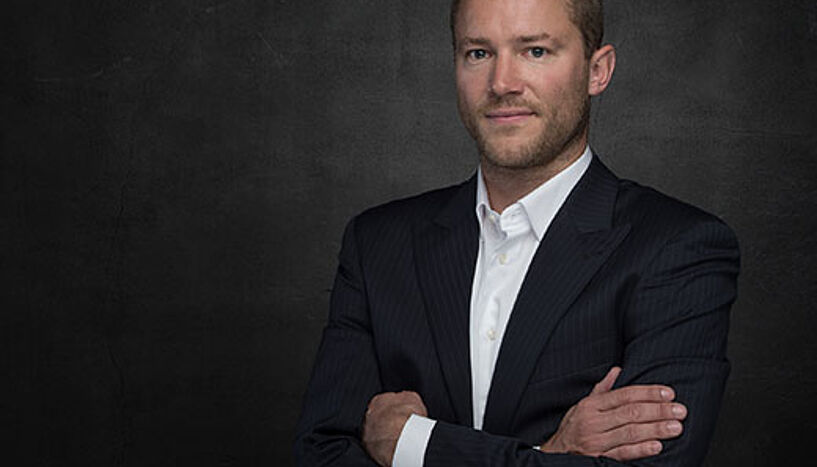Cancer cells thriving on a mistake
| 22. Juli 2015About 85-90 per cent of the cancer cells have the wrong number of chromosomes. But how do they survive and develop under these conditions? WWTF-"Young Investigator" Christopher Campbell and his team will trace the basic causes for that in the course of the following six years.
Christopher Campbell is one of the Max F. Perutz Laboratories' two award winners of the "Vienna Research Groups for Young Investigators" call 2014. Like his colleague Martin Leeb he is currently building up his research group at the MFPL, a joint venture of the University of Vienna and the Medical University of Vienna. The funding of 1.6 million euros provided by the Vienna Science and Technology Fund (WWTF) supports his research on chromosome segregation. During the next few years, his team will consist of the doctoral candidates Emma Stepinac and Amba Priya Dube as well as the technician Sarah Fink.
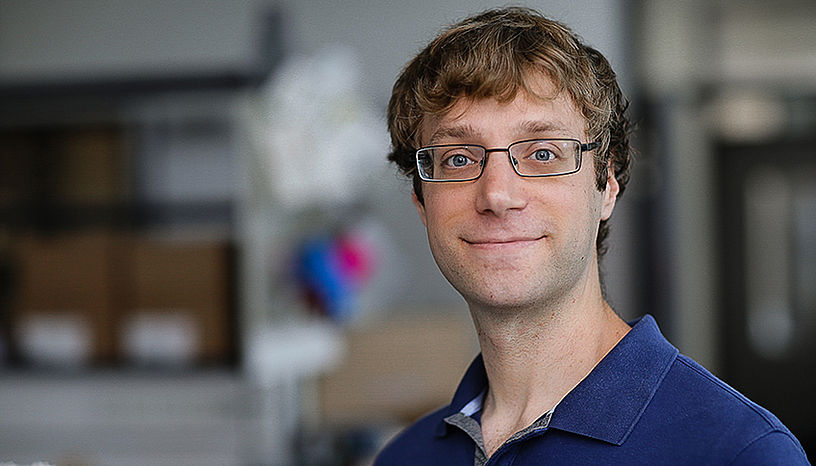
Christopher Campbell in his lab at the Max F. Perutz Laboratories, a joint venture of the University of Vienna and the Medical University of Vienna. (Photo: MFPL, Daniel Hinterramskogler)
Anomaly as a specific feature
The starting point of Campbell's research is the study of the basic mechanisms of cell division. Since chromosomes contain the genes, the construction plans of organisms, "each of the daughter cells of a dividing cell needs the correct and equal complement of the chromosomes," he explains. Nevertheless, daughter cells sometimes end up with the wrong number of chromosomes.
Generally, this so-called aneuploid state is damaging, often even fatal to the cell – in very early development, it can result in miscarriages or genetic disorders like Down syndrome. This, however, does not seem to apply to cancer cells, which survive and even thrive under these conditions.
Back to the basics
The causes for mistakes in chromosome segregation and their impacts on the daughter cells are yet unclear. In respect to cancer cells Campbell explains: "We do not know if this is somehow beneficial to the cancer, or if it is just another type of mutation similar to other cancer-causing mutations, or if it is a repercussion of other stages of cancer development and thus something the cells need to overcome."
In the years to come, Campbell and his team will study the basic mechanisms of chromosome segregation and how aneuploid cells develop. This, so he hopes, will allow a closer insight in the emergence of cancer as well as other research areas. "Chromosomes are a very fundamental aspect of all cells. Understanding better how they work can impact on basically any field of biology."
Inside the cancer cell cycle
Of particular interest will be, for example, the phase of cell division just before chromosomes spread apart. Normally, there are mechanisms to "distinguish between chromosomes that are properly aligned and those that are misaligned and therefore need a correction". These mechanisms, however, sometimes do not function.
Concerning aneuploid cell development a protein called P53 is important. While it usually indicates mistakes in a cell's DNA, the vast majority of cancer cells have disrupted its activity. "But that is clearly not the whole story" according to Campbell. "When you have a third copy of a chromosome, all the genes on it are expressed about 50 per cent higher. There are thousands of genes on a chromosome, each one making a little contribution in messing up how the cell functions."
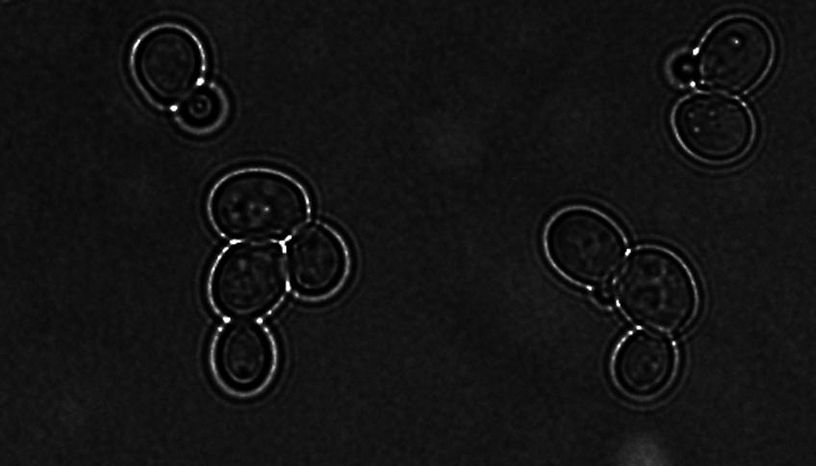
Christopher Campbell's budding yeast cells. (Photo: Christopher Campbell)
Using budding yeast as a research model
In his work, the 35-year old can rely on experiences gained in previous projects. While he focussed on bacteria during his PhD at the University of California in San Francisco, he used budding yeast as a model system in his postdoctoral research in San Diego. Due to its advantages, this will be the basic material also for his current research.
Compared to bacteria, the process of chromosome segregation in yeast cells is more complex but not too complicated for an observation of its basic principles. Besides, in contrast to the even more complex cells of mammals, budding yeast allows researchers to quickly gain results. "Within a month the cells have gone through hundreds of generations. You can see on a very simple level how they have adapted despite having the wrong number of chromosomes", Campbell explains.
Successful networking on a secure basis
The position as a WWTF Young Investigator in the Department of Chromosome Biology of the University of Vienna at the Max F. Perutz Laboratories provides Christopher Campbell with the necessary basis for successful research and a long-term perspective. "There are not a lot of jobs in Europe that provide both good start-up money and a tenure-track position. That is really special." But another important reason to come here had also been high density of research in his field at the MFPL, which makes current and future networking easy. "One of the great things about being here is that it is a hub for chromosome research." (jr)
Dr. Christopher Campbell, PhD, Department of Chromosome Biology, leads a research group at the Max F. Perutz Laboratories of the University of Vienna and the Medical University of Vienna. The project (duration: from May 2015 to approximately May 2021) receives funding from the 2014 "Vienna Research Groups for Young Investigators" call (WWTF).

